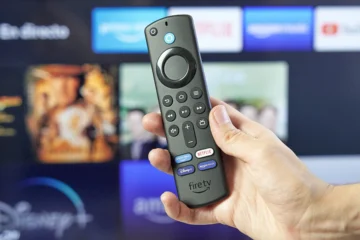Imagine waking up in the morning to a perfectly lit room, with the temperature set just right, and the aroma of freshly brewed coffee filling the air. As you step out of bed, your favorite music starts playing, and the blinds open to reveal a breathtaking view. This may sound like a scene from a futuristic movie, but it’s just a glimpse of the possibilities that Internet of Things technology (IoT) brings to our lives. With IoT, everyday devices can now be connected and seamlessly communicate with one another, making our homes smarter, more convenient, and more efficient.
Embrace the convenience and efficiency of a connected home with Internet of Things technology. Discover a new way of living where technology works for you, making your life easier and more enjoyable.
Where Can IoT Devices Be Used?
IoT devices are not limited to smart homes. They have found applications in various other contexts, transforming multiple aspects of daily life beyond just the home.
Industries are embracing IoT for improved productivity and efficiency, a concept known as Industry 4.0. Companies like Siemens, General Electric, and Bosch are implementing IoT solutions in manufacturing processes to optimize operations and reduce costs.
Furthermore, Internet of Things technology plays a crucial role in building smart cities. In these urban environments, IoT devices are deployed in transport infrastructure to monitor traffic and improve efficiency. They are also used in power and water supplies to enable effective management and conservation. Smart city initiatives leverage IoT for intelligent lighting systems that conserve energy and enhance safety. Additionally, IoT devices contribute to municipal data management, enabling efficient waste management, environmental monitoring, and urban planning.
In summary, IoT devices have diverse applications beyond smart homes. They are driving innovations in industries and transforming urban landscapes into smart cities.
Can IoT Devices Only Be Used in a Smart Home?
While IoT devices are commonly associated with smart homes, they are not limited to this context. IoT devices require an internet connection to function, but they can be used in a variety of settings beyond residential homes.
Industries have been quick to adopt Internet of Things technology to enhance productivity and efficiency. The concept of Industry 4.0 leverages IoT solutions to optimize manufacturing processes and enable real-time data monitoring. This transformative technology is also prevalent in smart cities, where it plays a crucial role in managing and improving essential services.
Smart cities utilize IoT devices in various areas, including transport infrastructure, power and water supply management, lighting systems, and municipal data collection. By integrating IoT technology into these critical aspects of urban life, cities can improve energy efficiency, reduce waste, and enhance overall quality of life.
Securing IoT Devices in a Connected World
As IoT devices connect to the internet, it becomes crucial to address the issue of security. A secure network is essential to safeguard personal information and protect against cyber threats.
“The increase in connected devices also raises concerns about potential vulnerabilities in the network. To ensure IT security in the home, the router plays a crucial role as the central hub for all internet-enabled devices.”
It is important to prioritize IoT security measures to prevent unauthorized access and data breaches. Manufacturers are continually working to improve the security features of IoT devices, but users must also take responsibility for implementing best practices, such as regularly updating firmware and using strong, unique passwords.
By addressing security concerns and implementing robust measures, individuals and organizations can harness the full potential of IoT technology safely and securely.
The Future of IoT Home Automation
The adoption of Internet of Things technology in homes is expected to continue growing, with the global market for IoT smart home devices projected to reach a value of over $53 billion by 2022. This surge in popularity is driven by the convenience and efficiency that connected devices bring to everyday life. However, as the IoT industry evolves, there is a need for improved integration and interface solutions to enhance the user experience.
One company at the forefront of this development is Josh.ai. They are focusing on creating home integration hubs that can seamlessly control multiple IoT devices through natural language processing and voice commands. By simplifying the interaction between users and their connected devices, Josh.ai aims to make IoT technology more user-friendly and productive.
As the demand for IoT devices grows, so does the importance of data analytics. The ability to analyze the vast amount of data generated by these devices provides valuable insights that can optimize their performance. With advancements in analytics and data processing, IoT devices can become even more efficient and tailored to users’ needs. This trend contributes to the overall growth and improvement of the IoT industry, aligning with the ongoing developments in productivity apps for 2024.






